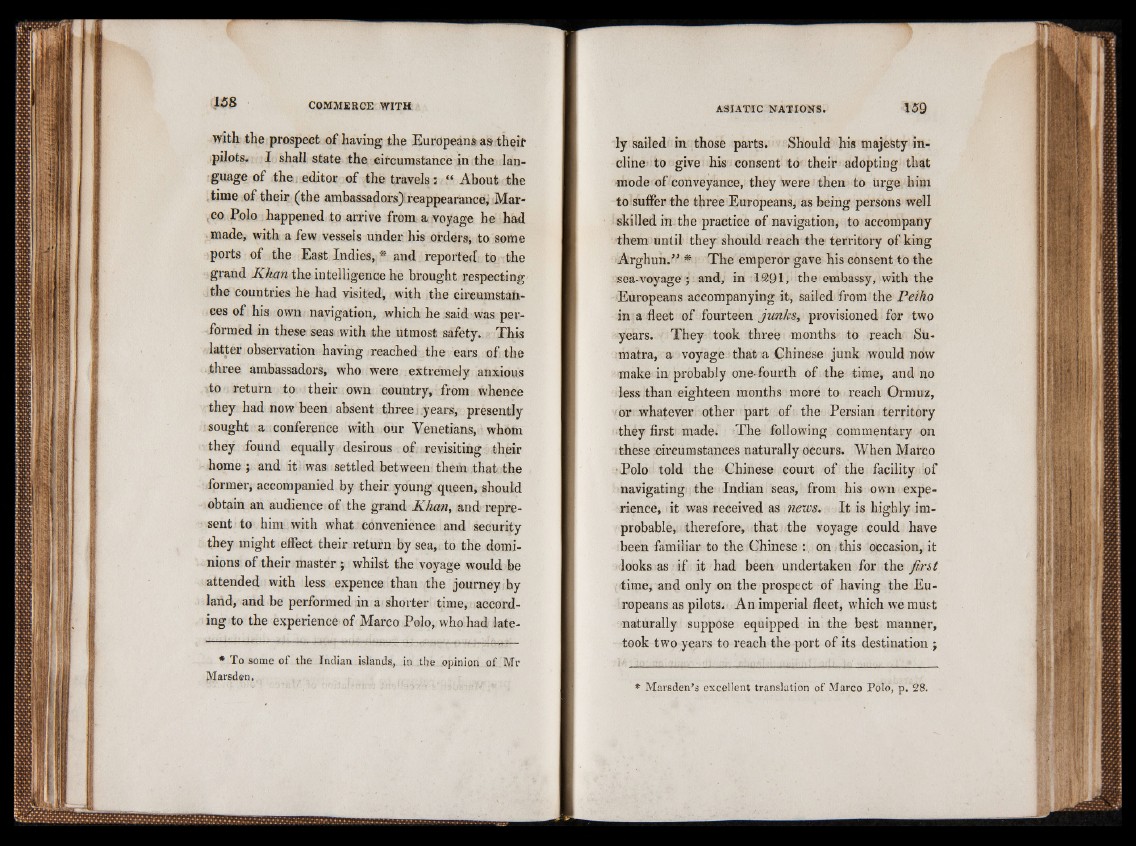
with the prospect of having the Europeans as their
pilots* I shall state the circumstance in the language
of the editor of the travels; “ About the
time of their (the ambassadors) reappearance, Marco
Polo happened to arrive from a voyage he had
made, with a few vessels under his orders, to some
ports of the East Indies, * and reported to the
grand Khan the intelligence he brought respecting
the countries he had visited, with the circumstances
of his own navigation, which he said was performed
in these seas with the utmost safety. This
latter observation having reached the ears of the
three ambassadors, who were extremely anxious
to return to their own country, from whence
they had now been absent three years, presently
sought a conference with our Venetians, whom
they found equally desirous of reyisiting their
home ; and it was settled between them that the
former, accompanied by their young queen, should
obtain an audience of the grand Khan, and represent
to him with what convenience and security
they might effect their return by sea, to the dominions
of their master ; whilst the voyage would be
attended with less expence than the journey by
land, and be performed in a shorter time, according
to the experience of Marco Polo, who had late*
To some of the Indian islands, in the opinion of Mr
Marsden.
ly sailed in those parts. Should his majesty incline
to give his consent to their adopting that
•mode of conveyance, they were then to urge him
to suffer the three Europeans, as being persons well
skilled in the practice of navigation, to accompany
them until they should reach the territory of king
Arghun.” * The emperor gave his consent to the
sea-voyage ; and, in 1291, the embassy, with the
Europeans accompanying it, sailed from the Peiho
in a fleet of fourteen junks, provisioned for two
years. They took three months to reach Sumatra,
a voyage that-a Chinese junk would now
make in probably one-fourth of the time, and no
less than eighteen months more to reach Ormuz,
or whatever other part of the Persian territory
they first made. The following commentary on
these circumstances naturally occurs. When Marco
•Polo told the Chinese court of the facility of
navigating the Indian seas, from his own experience,
it was received as news. It is highly improbable,
therefore, that the voyage could have
been familiar to the Chinese on this occasion, it
looks as if it had been undertaken for the first
time, and only on the prospect of having the Europeans
as pilots. An imperial fleet, which we must
naturally suppose equipped in the best manner,
took two years to reach the port of its destination j
* Marsden’s excellent translation of Marco Polo, p. 28.